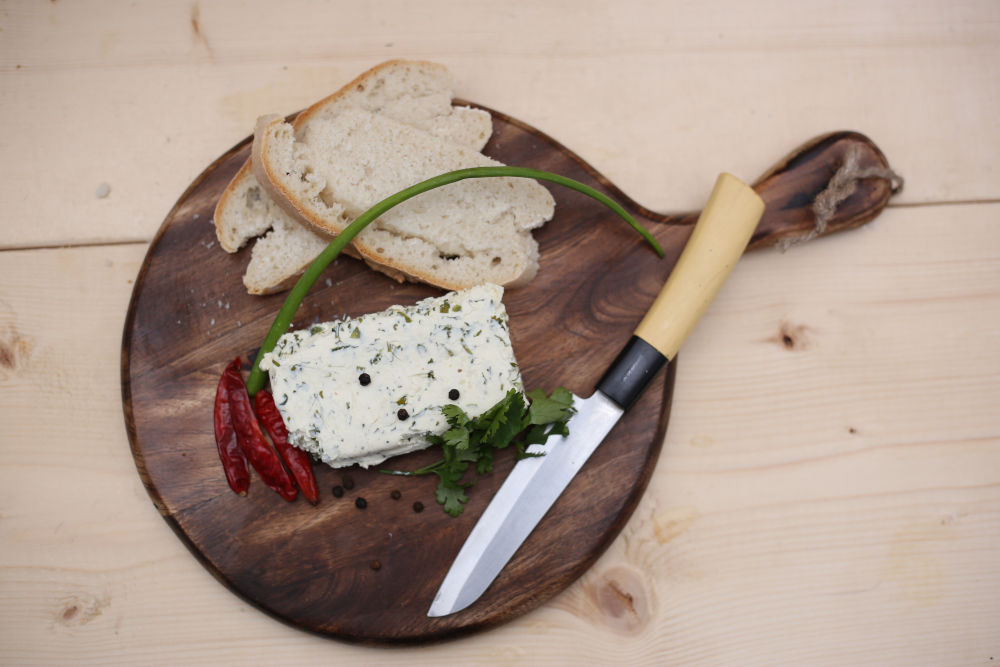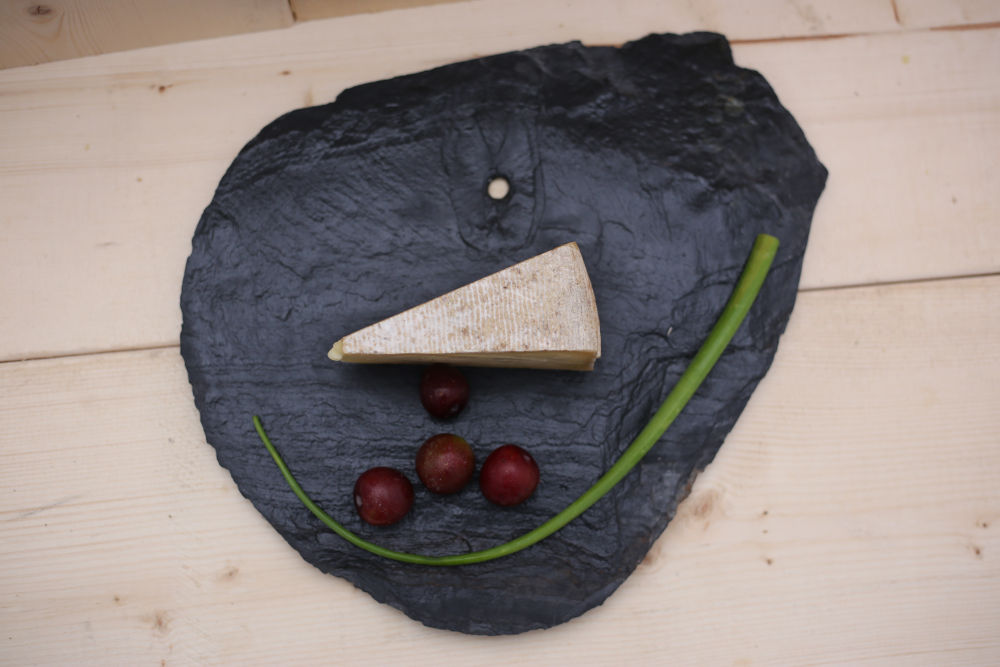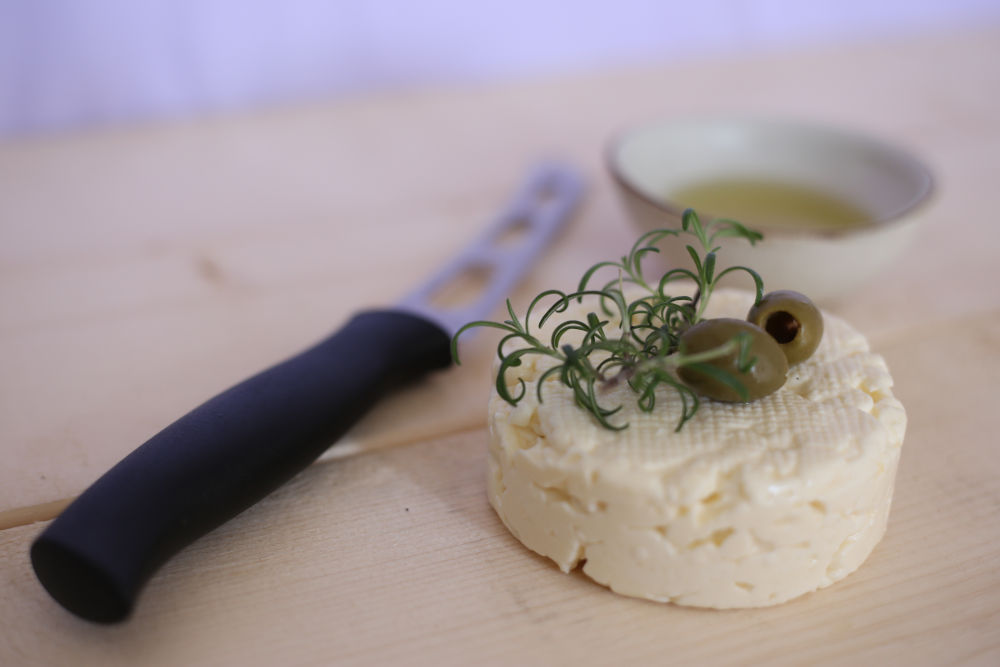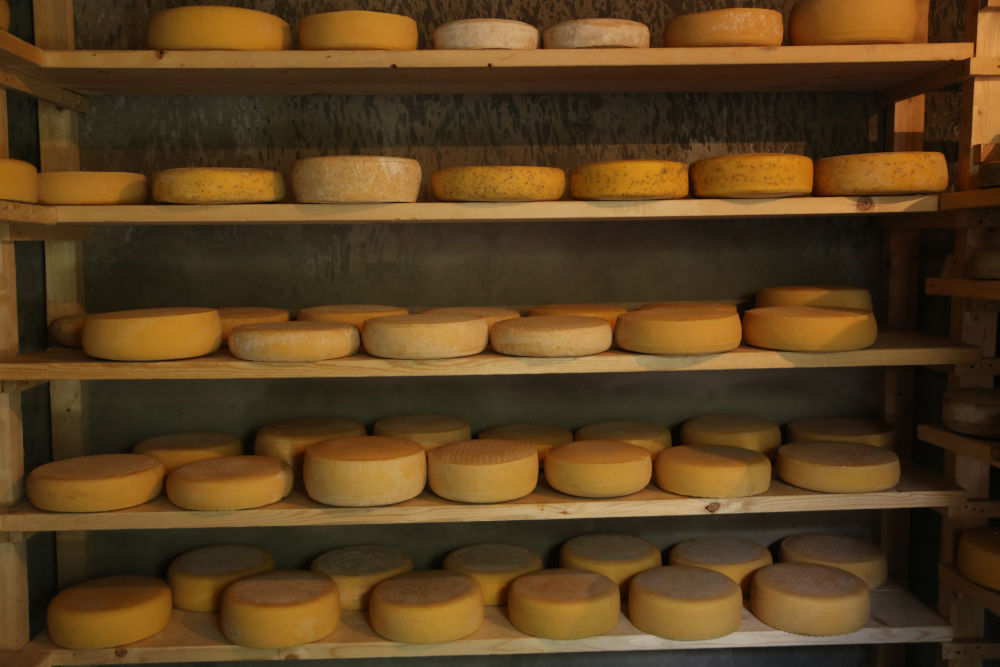Words by Roshna Chandran
Located on the picturesque foothills of the grand Himalayan range, lives French cheese maker, Francois Laederich. Although born and raised in Paris, Francois’s journey started in Aurillac, Auvergne-Rhone-Alps region of France and later to India along with his wife Debarati Laederich.
Hailing from a family of cheese makers, Francois naturally found his way into caseiculture, and with all the abundance of milk in the Himalayas he set up Amiksa Cheese, which is organic and handcrafted especially for the Indian market. The popular varieties of cheese are the European classics ranging from bloom rinds, aged cheese (which is matured from three to 18 months) and fresh, weekly made soft spreadables.
Francois elaborated: ”In total we have eight to nine varieties, including some which are twisted to suit the Indian palate. Our Confiture de Lait which is the French version of Dulche de leche is very popularly used in desserts, however, the most preferred variety in our repertoire is smoked cheese amongst aged ones, Zuri which is a bloom rind, and Borsalino which is a soft spreadable cheese with herbs and crushed peppers.”
LLM caught up with Francois about growing cheese trends and the different varieties that really kick the new age palette.
Regional trends

Consumers in India have a well travelled and insatiable palate. While they do recognise and are accepting of artisanal European standards, Francois finds that the smoked cheese and Gouda with cumin are in more demand in places like Mumbai and Ahmedabad. Whereas, people in Shimla, Delhi and Chandigarh prefer the soft herb cheese called Borsalino, Feta, Zuri, Bloom Rinds including the brand’s limited edition of Borsalino with nuts and raisins. In the East, places like Kolkata lean more towards aged, melting cheese like Fontina and mild Cheddar.
“Artisanal cheese served on grazing boards or platters are popularly at weddings, parties, events or social gatherings,” he pointed out. Catering to all age groups, Amiksa also has plenty of pre-teen consumers.
“It is a far cry from a country that only knew processed cheese,” commented Francois, who has been creating plenty of promotional activities such as cheese pairings and DIY cheese making crash courses. Details about the cheeses are explained on websites, social media channels and on product labels.
Mashobra’s magic

“Our family had a cheese factory in Pondicherry and we definitely had a lot of input from them in the area of production and its challenges,” said Francois, “Himachal, especially the area that we operate Amiksa Cheese from, is pristine. We have one of the best office views one can find and a preferred tourist destination. So, Mashobra definitely works in providing a unique flavour to the cheese.”
Francois and his team go about collecting milk from 15 families in the villages of Mashobra. The women in these villages cut fresh grass from the hillside to feed their cows. According to Francois, the fields are dotted with daisies, wild herbs, etc., which is what gives the milk its particular characteristics and flavour.
He explained,”In Europe, cheese making had traditionally started on the mountains, as the mountainous climate, like ours in Mashobra, suits this sort of a business. Moreover, the region geographically follows a four season pattern, which in turn gives the cheese its special trait.”
The ageing process

The Artisanal production begins as soon as the cow’s milk has been delivered by the local farmers. Chandon, one of Amiksa’s master cheese makers, does a round of quality checks and decides on the type of cheese to be made on a daily basis. Francois stressed that a lot of care and attention goes into the entire production process which ends by 3pm.
“Once all the cheeses are in the cellar to start its ageing process, there are attentive techniques carried out, like brushing, flipping etc., on a frequent basis to ensure a proper mould development,” he explained. ”Our cellar now has almost 150 to 200 wheels of different varieties stored in constant temperature and controlled humidity environment. For instance, the Bloomy Rind requires a one month ageing process, the other aged cheese varieties take three to 18 months depending on its type.”
The supply chain and challenges

Amiksa cheese is supplied through public transport for short distance deliveries and through courier for a longer distance supply, from Gurgaon, with the cheese packed in temperature controlled boxes.
Though Francois’s family had been running their own cheese factory in Pondicherry for several years, he did not foresee challenges when he had decided to set up Amiksa in Mashobra. Convincing villagers about their need for an abundant supply of milk on a daily basis was not an easy task. Tackling logistics was a huge challenge due to the lack of temperature controlled supply system while commuting.
“It was not an easy decision to shift to the north with neither of us knowing anything about the region, its advantages, its disadvantages etc.,”
”We started production in November 2019 and the sales began a little after the first Covid lockdown during the third quarter of 2020. It was a decision from the heart and we were determined to do something there. And boy was it a good decision! We have only been met with smiles, open arms, strangers helping and appreciating us. It was serendipitous.”






















